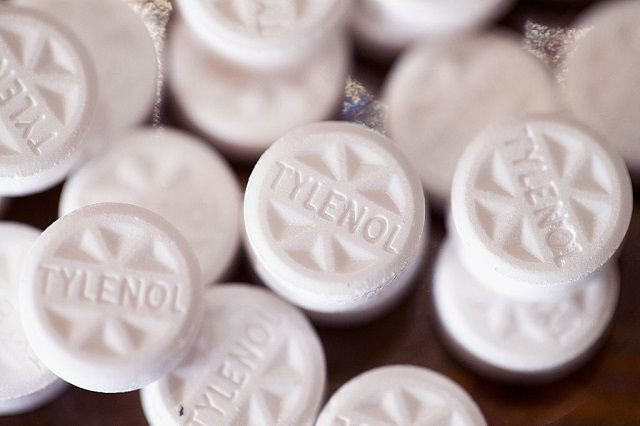Is Acetaminophen Safe? What We Know About Health Risks Of Tylenol, Generics

The popping of a Tylenol pill, which contains acetaminophen, come headache or hangover, is practically a reflex. (Just don’t expect it to help with your neck or back pain.) But are there any health risks we should be on the lookout for concerning the over-the-counter painkiller? Here's a brief look.
As Medical Daily has explained, acetaminophen is one of the earliest discovered painkilling medications we still use today, second only to aspirin. And in many circumstances, it’s the safest one to turn to. Children under the age of 18 shouldn’t take aspirin, because it may cause a rare, potentially fatal condition known as Reye syndrome when given to children already suffering from a viral infection. And though ibuprofen can be used with young children, only acetaminophen is recommended for infants younger than 6 months old.
Acetaminophen does come with its own set of rare but serious health risks, though. Research has linked it to liver toxicity as well as kidney and gastrointestinal issues, including bleeding. There’s also some limited evidence that taking painkillers like acetaminophen can dull our emotions. And it’s estimated that overdoses of the drug lead to nearly 500 deaths and 56,000 emergency room visits in the U.S. annually. The threat of overdose has become so prevalent that the Food and Drug Administration (FDA) called it a “persistent, important public health problem” in 2013. And there have since been labeling changes prompted by the FDA to help better warn customers about overdosing or combining it with alcohol.
None of this means that you should throw your bottle of Tylenol or generic acetaminophen out the window or suffer for hours with a migraine on the small chance of harm. It just reaffirms one of the most important lessons of medicine: No drug or therapy, no matter how miraculous it might seem, comes risk-free.



























